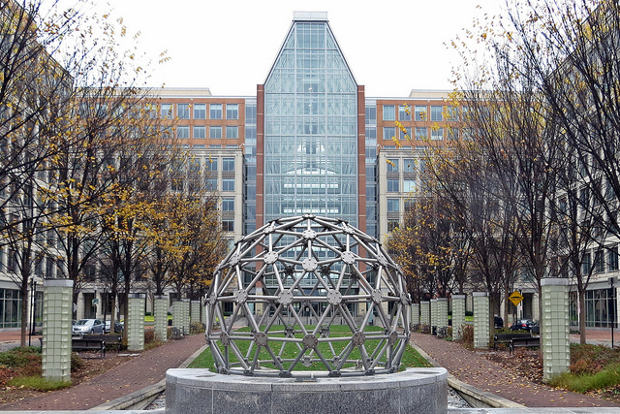 US Patent and Trademark Office in Alexandria, VirginiaFLICKR, ALAN KOTOKFeng Zhang of the Broad Institute of MIT and Harvard University was awarded the first patent for the use of CRISPR to edit eukaryotic genomes in spring 2014. Jennifer Doudna of the University of California, Berkeley, along with Emmanuelle Charpentier, now at Umeå University in Sweden and the Max Planck Institute for Infection Biology in Berlin, and their colleagues, filed a provisional patent application for their CRISPR technology back in March 2013—six months before Zhang filed. This past January, the US Patent and Trademark Office (USPTO) declared an “interference” between the two parties’ intellectual property claims.
US Patent and Trademark Office in Alexandria, VirginiaFLICKR, ALAN KOTOKFeng Zhang of the Broad Institute of MIT and Harvard University was awarded the first patent for the use of CRISPR to edit eukaryotic genomes in spring 2014. Jennifer Doudna of the University of California, Berkeley, along with Emmanuelle Charpentier, now at Umeå University in Sweden and the Max Planck Institute for Infection Biology in Berlin, and their colleagues, filed a provisional patent application for their CRISPR technology back in March 2013—six months before Zhang filed. This past January, the US Patent and Trademark Office (USPTO) declared an “interference” between the two parties’ intellectual property claims.
That investigation is slated to begin today (March 9), when a panel of three USPTO patent judges will participate in a conference call with the opposing parties to hear a challenge to Zhang’s original patent, according to STAT News. Over the course of the interference inquiry, the judges will listen to arguments from each side in hopes of determining which team not only was the first to adapt the CRISPR/Cas9 bacterial immune system into the widely popular gene-editing technology, but also the first to conceive of the idea, John Conley, a legal scholar at the University of North Carolina in Chapel Hill, told Nature. “It’s hard for me to cite anything more convoluted in the law than this,” Conley said. “It’s mind-boggling.”
Patent attorney Eugene ...





















